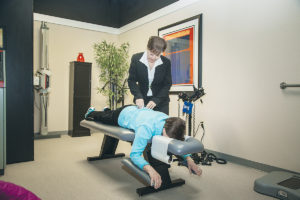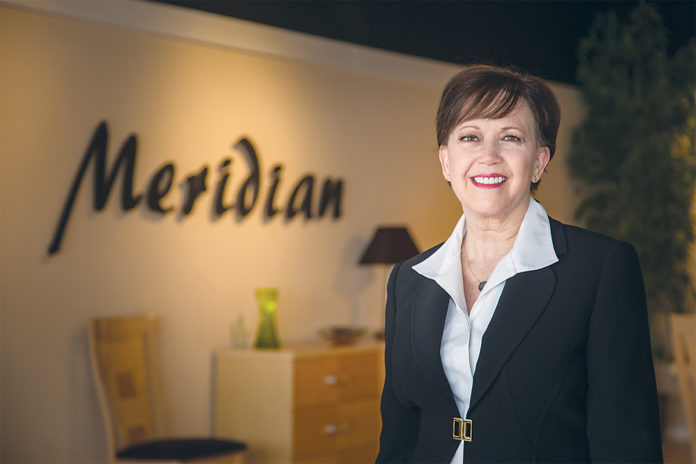Dr. Janie Gifford, 56, was the picture of health. In fact, her doctor told her just that in 2006 when she had her routine physical. However, two weeks later, the Frisco resident says she felt like her heart was about to explode out of her chest. After a trip to the emergency room and what seemed like thousands of tests, she learned she had a form of multiple myeloma, a type of bone cancer. Even though 90 percent of her bone marrow was cancerous, she felt perfectly healthy. “I had none of the characteristic symptoms of bone cancer,” says Dr. Gifford, who is a chiropractor and acupuncturist and owns Meridian Wellness Healing Spa in The Colony. “Needless to say the doctors were perplexed.”
As a single mom, Dr. Gifford was used to doing things on her own, including driving herself to the emergency room. “Being the superwoman that I was, why not?” she says. She lost her husband in 1996 after a motorcycle accident; they have a son and a daughter. “I realized then, as a parent, I had to step up to the plate to do it all and do it the best I possibly could,” she explains.
Her condition — nonsecretory multiple myeloma — was grave. The doctors told her family she had about a 15 percent chance of survival. However, Dr. Gifford intentionally didn’t ask about her prognosis. “What were the statistics going to do for me other than plan my funeral?” she says. “I just refused to allow that in my psyche. I made up my mind that I was going to live every day and live as long as God was going to allow me to.”
Through a recommendation from her doctor, she traveled to a facility in Little Rock, Ark. for more testing and treatment. She soon learned, on top of her stage-three bone cancer, she also had developed leukemia. Yet, she was feeling fine. She remembers sitting in an exam room, being questioned by a nurse, when one of the doctors came in. Dr. Gifford recalls, “He looked at me and he looked at the nurse and said, ‘Where is my patient?’ He later said to me, ‘When I walked into that room and I had that blood work in my hand and I looked at you, I thought there is no way that you were this person.’”
Her team in Little Rock had her in the hospital on massive doses of intravenous chemotherapy. The first round didn’t work. The next “recipe,” as Dr. Gifford calls it, seemed to work, but the medication made her very ill, causing her to lose 20 pounds in two weeks. Three months later, she was still being treated in Little Rock. She tried to go home for her daughter’s birthday. She remembers, “I was there for three days and I had to go back. I was so sick I couldn’t even stay at home. I went back and I was in the hospital from then on. My kids came up I think about three times. I have a lot of memory loss from that time.”
Her kids, who were 9 and 13 at the time, were being cared for by her 87-year-old father, along with help from her friends. “This entire army of women showed up and took over. My kids didn’t miss a camp, school or a homework assignment. It was the most amazing thing,” she says.
As her condition worsened, Dr. Gifford underwent a bone marrow transplant. “They were able to harvest stem cells from me. They called me a super donor because the healthy cells I did have were extremely healthy,” she says. But an infection following the transplant caused her to become even more ill. “It was just one disaster after another,” she says.
One day in September, after she had been in Little Rock for six months, she woke up and said, “I’m going home.” Her brother, who was visiting her at the time, said, “Okay, we’ll speak to the doctor” and she replied, “I’m going home.” And she did.
She had severe neuropathy (nerve damage) from the medication; she had lost 50 pounds and she literally could not lift a finger. “My oncologist later said to me, ‘You were nothing but a corpse.’ There was nothing left of me, except my will to live.”
At home in Frisco, her support system rallied around her. “My father and all these wonderful families kept food coming, took care of my kids, prayed for me and nurtured me,” she says. “That was very healing to me to know that my kids were well taken care of.”
Little by little, she started to improve. “I started pulling myself back. I started being able to hold food down. I started to be able to sit up on a sofa by myself. With the encouragement of my family, I just started getting a little better,” she says.
Dr. Gifford was in remission and her blood tests verified this information until May 2007. The doctor suggested they run more tests, but she declined. She says, “I wasn’t willing to do chemo again. I didn’t have the stamina. It would have been a death sentence. I thought, ‘If the good Lord is ready for me then that’s fine with me. I gave it my best shot.’”
Dr. Gifford started going to alternative doctors she knew. She continued to follow a healthy diet and exercise while taking organic supplements and nutraceuticals. In addition, she practiced homeopathy, laser acupuncture and chiropractic care.
After about a year and a half from her diagnosis, she says she felt stronger and started to look like herself again. “I had gained the weight back. My hair grew back in really dark and I don’t even have any gray hair to this day,” she says. “I tell everybody that’s my consolation prize.”
 She got to a point where she could return to work as a chiropractor. She wasn’t out of the woods though. “My body was so depleted it look about three years for my neuropathy to heal,” she says. “All the medical doctors told me I would never be healed from the neuropathy.” However, she went from having no feeling in her legs to having 98 percent feeling in her legs and no pain.r
She got to a point where she could return to work as a chiropractor. She wasn’t out of the woods though. “My body was so depleted it look about three years for my neuropathy to heal,” she says. “All the medical doctors told me I would never be healed from the neuropathy.” However, she went from having no feeling in her legs to having 98 percent feeling in her legs and no pain.r
And although she shares her story with patients and anyone who asks, she maintains that she does not treat cancer: “What I do is help people learn a therapeutic lifestyle so that they can give their bodies the ability to heal as much aspossible. If that has to be complimented with traditional medicine, then so be it. It doesn’t have to be either/or and that’s what’s so wrong, so often. Medicine is not the answer for everything and neither is alternative.”
Now, almost eight years later, there is no presence of the disease in Dr. Gifford’s body. But she is not naïve. “The general consensus in the field of oncology is it’s only a matter of time; it will come back,” she says. “I frankly do not believe you can follow a lot of statistics. I’ve obviously shattered the statistics.”
For now, she is grateful for every day that she has survived this disease. She says, “[The doctors] would never ever have expected me to live this long. It is really, truly a miracle. It speaks of the human potential. The potential for cancer is always there in every one. But the potential for healing is greater.”


